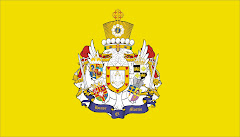
3-5 September 2008, UNESCO, ParisThe 61st Annual DPI/NGO Conference "Reaffirming Human Rights: The Universal Declaration at 60" will be held 3-5 September 2008 in Paris, France. Information bulletins are produced and distributed periodically by the Co-Chairs of the Planning Committee.
Conference Programme Overview
Submitted on 10 March 2008
Shamina de Gonzaga
Chair, 61st Annual DPI/NGO Conference
Overview
.
Over the course of three days (from 3 - 5 September 2008), 2000+ representatives of NGOs, grass-roots organizations, UN system, private sector, academia, media, philanthropists, youth and other constituencies will gather in Paris - city of the signature of the UDHR in 1948 - to commemorate the 60th anniversary of the UDHR by examining its application in the context of current realities and emerging issues worldwide.
.
The Conference will provide background on the human rights treaty system (Day 1); perspectives on the implementation of human rights in the context of on-going challenges as well as emerging issues worldwide (Day 2); and outlooks on how to make better use of existing mechanisms for the protection of human rights at the international and national levels, as well as examine ways to empower civil society at the local level (Day 3).
.
Following is an overview of the tentative programme of the 61st Annual DPI/NGO Conference, including structure, thematic outline, and opportunities for participation, reflecting proposals formulated by the thematic subcommittee of the Conference Planning Committee and other input received.
.
NGO representatives are being invited to:
- provide input regarding the topics of break-out sessions;
- reflect on useful outcomes for each round-table;
- nominate speakers.
.
Round-tables
.
- The Conference will feature five round-tables.
- Each round-table will be three hours long and will comprise (a) a one-hour long expert panel to provide background on the issue, followed by (b) simultaneous two-hour break-out sessions to enable in-depth discussions on sub-sets of the issue.
- Both panel discussions and break-out sessions will be filmed and webcast live.
- Panels should feature a maximum of three speakers + moderator.
- There may be up to (4) break-out sessions per round-table.
- The break-out sessions may be co-led by a NGO and UN agency/department identified beforehand; or other institution as appropriate for the topic in question.
.
Midday meetings
.
- To provide a space for NGOs in collaboration with UN agencies, Member States and/or other stakeholders to present their approach in relation to the topics of the round-tables, as well as formulate recommendations, up to fifteen simultaneous midday workshops will be held.
- Efforts will be made to ensure that organizations from all regions have the opportunity to convene midday workshops.
- The guidelines for submitting proposals are being developed by the midday workshop subcommittee and will be available shortly.
- In addition to the workshops, other midday meetings will include training and capacity building sessions for civil society in diverse areas addressed by the Conference.
.
Caucuses
.
To provide an opportunity for groups with specific interests (regional - issue - or constituency based) to network, share best practices and formulate recommendations and action points, caucuses will have the opportunity to meet daily during the Conference. Proposals for caucuses currently include:
- youth
- women and girls
- peace
- persons with disabilities
- indigenous peoples
- regional caucuses
- interfaith
Coordinators for the caucuses will be identified in advance of the Conference.
.
Report back
.
- Rapporteurs will be designated to each round-table panel and break-out session, midday meeting and caucus.
- Rapporteurs will note key findings, best practices, challenges and recommendations and will submit their reports to a drafting group that will have been formed prior to the Conference.
- The drafting group will identify action points and articulate proposed outcomes and follow-up.
- During the afternoon session of 5 September, for each of the five round-tables, one NGO representative (one from each region) will present the key findings of that round-table.
- Following the round-table presentations, the Chair of the NGO/DPI Executive Committee and the President of CONGO will present the action points emerging from the Conference and proposed follow-up.
- The outcomes will be reflected in the Final Report of the Conference.
.
Resource Centre
.
It is proposed that a room staffed by the Office of the High Commissioner for Human Rights be available throughout the Conference to provide information for any interested Conference participant.
.
Conversation Lounges
.
Off the record discussion spaces will be made available throughout the Conference to enable informal exchanges on topics of interest.
.
Parallel events
.
To maximize momentum around the commemoration of the 60th anniversary of the UDHR, and enable interaction between the NGO community and the broad public, various activities are being planned in the city of Paris including exhibits, a human rights village, a ceremony and silent meditation to commemorate human rights defenders and victims.
.
Preparatory activities and documents
.
With a view to inviting diverse perspectives on the topics addressed by the Conference, preparatory activities are being organized in collaboration with diverse institutions. Outcomes of preparatory activities will be made available, and background documents for each round-table will be provided to speakers and participants prior to the Conference.





